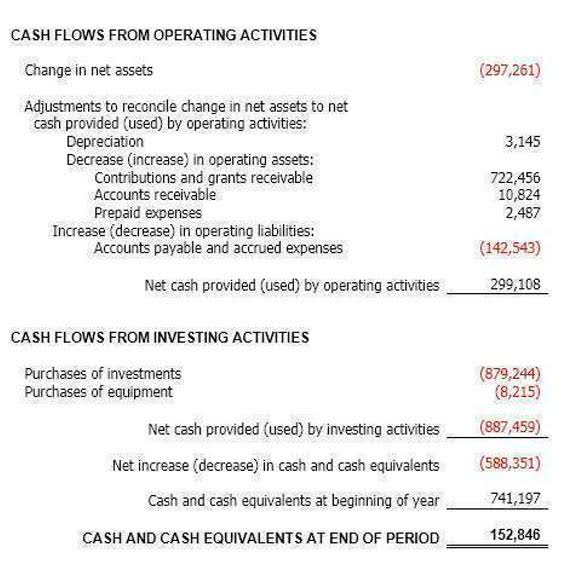
It provides the framework for recording the financial transactions of the business. Auditors play a crucial role in assessing the going concern assumption and providing an opinion on the company’s financial statements. If an auditor identifies substantial doubt about a company’s ability to continue as a going concern, they must disclose these concerns in their audit report, which may affect the company’s reputation and access to capital markets. The “going concern” principle is a fundamental concept in accounting that assumes that a business will continue to operate for the foreseeable future.

What is the concern principle of accounting?

For example, if a company’s management wants to compare the net profit of the current year with the previous year, it can do so only when the accounting policies followed by the company in both years are the same. For example, if a company has used the SLM depreciation method in the previous year and the WDV method of depreciation in the current year; it would not be able to compare the figures. An adverse opinion states that the financial statements do not present fairly (or give a true and fair view). This opinion will be expressed regardless of whether or not the financial statements include disclosure of the inappropriateness of management’s use of the going concern basis of accounting. Once these factors have been identified, candidates should then be able to think about the procedures the auditor may adopt to establish whether the factors mean the going concern basis of accounting is appropriate in the circumstances, or not. The going concern principle is the assumption that an entity will remain in business for the foreseeable future.
C. Adjustments in Financial Reporting for Non-Going Concern Entities
Along these lines, the value of a company that is thought to be a going concern is higher than its breakup value since a going concern can possibly keep on earning profits. Let us understand the importance of incorporating accounting concept principles in any business or organization through the discussion below. To sell a business as a going concern is when a company owner sells a business to a buyer that can continue operating as usual in its current financial state, using existing resources available to the business, such as equipment and premises. Going concern concept assumes that a business will run it’s operations for a forseeable future.
- Statements should also include management’s assessment of the situation and its expectations for the future.
- The going concern concept assumes that a company will operate more or less in the normal course for the foreseeable future and will not shut down or liquidate anytime soon.
- On the other hand, if a company intends to close operations, financial statements will reflect such an intent—the company must disclose it.
- Assets are valued for their individual worth rather than their value as a combined unit.
- It ensures that financial statements reflect the long-term perspective of the business, rather than a short-term or winding-up scenario, offering stakeholders reliable information for decision-making.
- If there is uncertainty as to a company’s ability to meet the going concern assumption, the facts and conditions must be disclosed in its financial statements.
- By assuming continuity, businesses can make informed decisions, allocate costs appropriately, and instil confidence among stakeholders.
A. Auditor’s Responsibility in Assessing Going Concern
The assessment of the going concern assumption is a responsibility of management and is essential for stakeholders in making informed decisions based on financial statements. Going concern is one the fundamental assumptions in accounting on the basis of which financial statements are prepared. Therefore, it is assumed that the entity will realize its assets and settle its obligations in the normal course of the business. The going concern concept is a fundamental principle in accounting that assumes a petty cash business will continue its operations for the foreseeable future. This assumption is vital for preparing financial statements, as it ensures that assets and liabilities are appropriately valued and allocated over time. Without this concept, businesses would need to adopt alternative bases of accounting, such as liquidation accounting, which can significantly alter the way financial information is presented.

An example of such going concern concept example contrary information is an entity’s inability to meet its obligations as they come due without substantial asset sales or debt restructurings. If such were not the case, an entity would essentially be acquiring assets with the intention of closing its operations and reselling the assets to another party. However, when we consider the concept of going concern, such a change in asset value will be ignored in the short run. The principle highlights the assumption that companies intend to keep assets and generate profits in the future—assets won’t be sold in between.


Economic uncertainty has been prevalent in global markets over the last several years due to many unexpected macro events – from COVID-19 and the related supply chain disruptions to international conflicts and rising interest rates. While some companies thrive from uncertainty, others may see their financial performance, liquidity and Sales Forecasting cash flow projections negatively impacted. These vulnerabilities continue to shine a bright light on management’s responsibility for a going concern assessment. Accounting standards determine what a company must disclose on its financial statements if there are doubts about its ability to continue as a going concern. Again, the going concern principle depends a lot on management assumptions regarding the future of the company.
Going Concern Assumption
- In layman’s terms, they are the fundamental building blocks of the transactions of the business.
- In accounting, a corporation is considered a going concern if it has the resources to operate indefinitely unless it can prove otherwise.
- Therefore, the concept of preparation of Financial Statements based on Periodicity Assumption is that the entity Financial Statements.
- The going concern assumption contrasts with the liquidation basis of accounting, where a company prepares its financial statements with the presumption that it will cease operations and liquidate its assets in the near term.
- Once the time frame is identified, internal control over financial reporting should be appropriately set up and controlled.
- The benefits of going concern are pretty straightforward – it gives businesses peace of mind and investors confidence.
Concepts like the accrual basis of accounting and the going concern assumption help businesses present a true and fair view of their financial health. The going concern assumption contrasts with the liquidation basis of accounting, where a company prepares its financial statements with the presumption that it will cease operations and liquidate its assets in the near term. The going concern assumption implies that a company will continue its business operations without any intention or necessity to liquidate or cease operations. This allows financial statement users to make decisions based on the company’s ability to generate future cash flows and profits.
